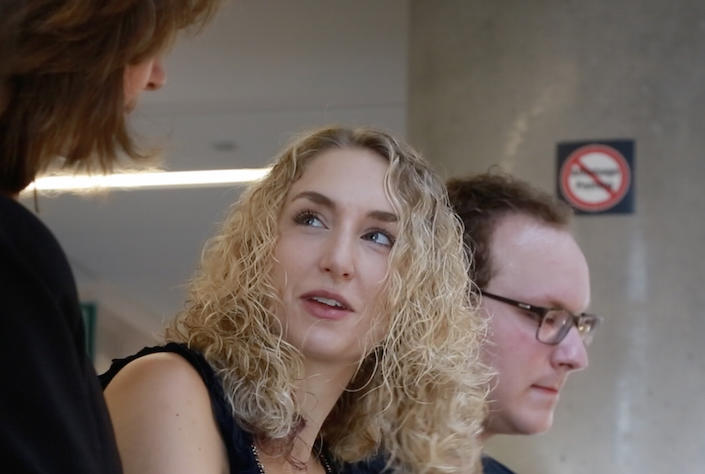
By Leah Geller
For more than a decade, uOttawa law professor Nathalie Chalifour has analyzed the constitutionality of federal climate legislation. In February this year, the outside world came knocking, and her expertise was put to the test.
Saskatchewan was challenging the constitutionality of the federal government’s new national carbon pricing legislation, which came into force on April 1, 2019, in provinces lacking their own plans to reduce carbon emissions. The Ecofiscal Commission, acting as an intervenor in support of the federal carbon tax, invited her and Professor Stewart Elgie to represent it in the case before the Saskatchewan Court of Appeal.
“This will be a really significant decision, with huge consequences, both legally and politically,” said Chalifour, who is co-director of uOttawa's Centre for Environmental Law and Global Sustainability. “If the constitutionality of a federal carbon tax is struck down and we can’t establish a national climate policy, it will have an immense impact on generations to come.”
Most of Chalifour’s work since arriving at the University in 2003 has been academic and behind the scenes. This kind of case would be a first for her. She partnered with Elgie to draft the arguments, while two law students, Mari Galloway and Taylor Wormington, helped with research.
Two other uOttawa professors took part in the hearing, also in support of the federal position. Amir Attaran represented the Athabasca Chipewyan First Nation, while Josh Ginsberg, director of uOttawa’s Ecojustice Clinic, represented the David Suzuki Foundation. They were assisted by recent uOttawa LLM graduate Danielle Gallant (now also a lawyer at Ecojustice) and Anna McIntosh, who is articling at Ecojustice.
“Along with the four professors involved, we had three students and one grad helping out, plus even more students who conducted a mock hearing of the case through the Ecojustice Clinic,” Chalifour said.
A question of jurisdiction
On the first day of the February 13 and 14 trial, Saskatchewan and its intervenors argued that the federal law would intrude on provincial jurisdiction. On the second day, Chalifour and Elgie argued that the law would not prevent the province from taking its own action to fight greenhouse gas emissions and that there is plenty of room for both provincial and federal legislation to tackle the climate crisis.
They pointed to the co-existence of federal and provincial jurisdiction in other environmental areas, such as water management and air pollution. And, earlier in the day, the federal government argued that climate change is a matter of national concern, justifying a federal law.
The court’s final decision may take months. In the meantime, Chalifour is busy preparing to represent the United Chiefs and Councils of Mnidoo Mnising, a group of six First Nations on Manitoulin Island, in a similar court challenge brought by Ontario. Her former student at uOttawa, Tyler Paquette, is an articling student at Westaway Law, the firm taking on the case, and he has helped draft the arguments.
In Chalifour’s research on climate policy and law, the issue of federal versus provincial jurisdiction has been a consistent concern.
“It’s clear that Canada’s climate policy has been influenced heavily by the division of powers between the federal government and the provinces, and that our lack of progress can be explained in part by these dynamics,” said Chalifour, who believes the way forward will involve intergovernmental cooperation and a legally binding federal plan.
